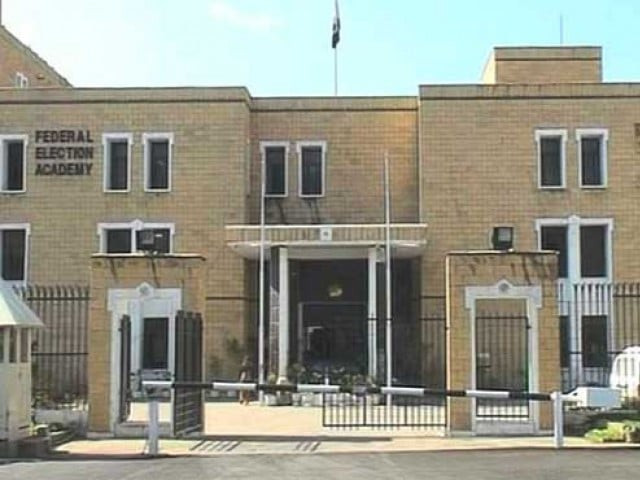Bill shot down: Payment of salaries to ECP men termed illegal
Senate panel says move undermines powers of upper house.

Election Commission of Pakistan. PHOTO ECP.GOV.PK
The Senate committee refused to accept the Members Election Commission Salary Bill as a money bill, which the government had moved to give a legal cover to these payments.
The government tabled the Members Election Commission Salary, Allowances, Perks and Privileges Bill 2016 in the meeting of the Senate’s Standing Committee on Finance as a ‘Money Bill’. In such cases, the Senate does not have powers to vote, unlike a normal piece of legislation where the upper house of parliament can approve or disapprove it.

Terming the move ‘unprecedented’ and ‘unconstitutional’, the committee said that there was no precedent when salaries of even constitutional position holders were approved by way of a money bill.
The government had moved the bill to pay the salaries to the four members of the ECP equivalent to salary drawn by a sitting judge of a high court. The ECP is a constitutional body mandated to hold elections in the country.
To the surprise of the committee, ECP officials disclosed that they were regularly getting salaries, although there was no legal provision for authorising such payments.
Just minutes prior to the disclosure, Finance Secretary Dr Waqar Masood told the committee that the ECP team was working on honorary basis and were “getting only travel allowances and daily allowances”.
“You have misled the committee,” remarked chairman of the committee Senator Saleem Mandviwalla of the PPP when the ECP officials revealed that they had been receiving salaries equivalent to the salary of a high court judge since June 2011 –when they were appointed for a fixed five-year term.
Mandvialla said that the government was using parliament as a ‘rubber stamp’.
An official clarified that the monthly pay package of a high court judge was around one million rupees, including a salary of Rs527,270, judicial allowances worth Rs207,207 and a house rent of Rs65,000.
“It is highly unfair and illegal to give salaries to members of the ECP without any legal cover,” said Senator Mohsin Legahri.
Official documents showed that the ECP had directly written to Accountant-General of Pakistan Revenue to disburse the salaries to its members, bypassing the finance ministry.
Later, the finance ministry had concurred with the ECP, paving the way for uninterrupted payment of salaries since 2011.
The finance secretary said that the AGPR was making provisional payments to ECP members and if parliament did not approve the pay package, the salaries will be recovered from the ECP members.
The committee’s chairman said that the move to get the bill passed as money bill was aimed at depriving the Senate from its constitutional right of casting vote. The committee was of the unanimous opinion that the bill did not fit the definition of a Money Bill.
Usually, the finance ministry moved money bills but the ECP members salary bill was moved by the parliamentary affairs ministry.
Published in The Express Tribune, April 22nd, 2016.



















COMMENTS
Comments are moderated and generally will be posted if they are on-topic and not abusive.
For more information, please see our Comments FAQ